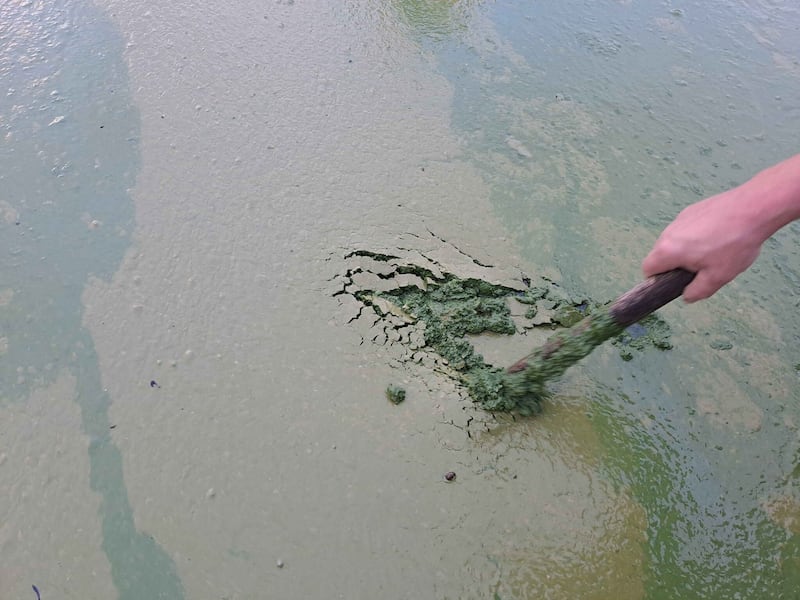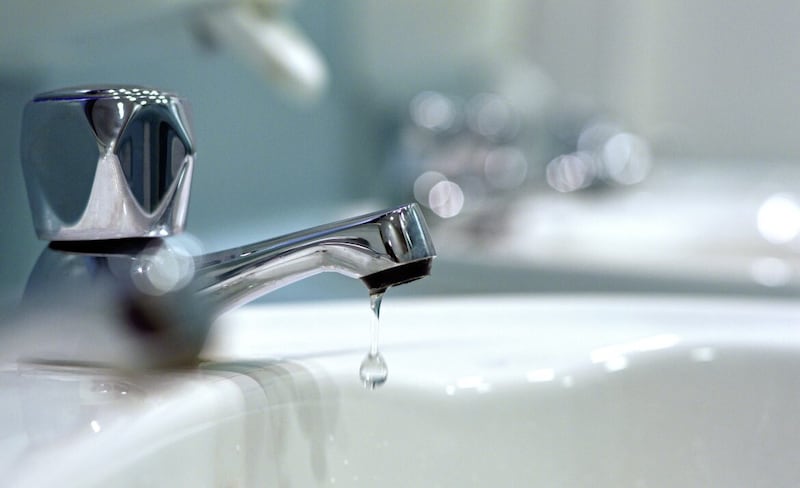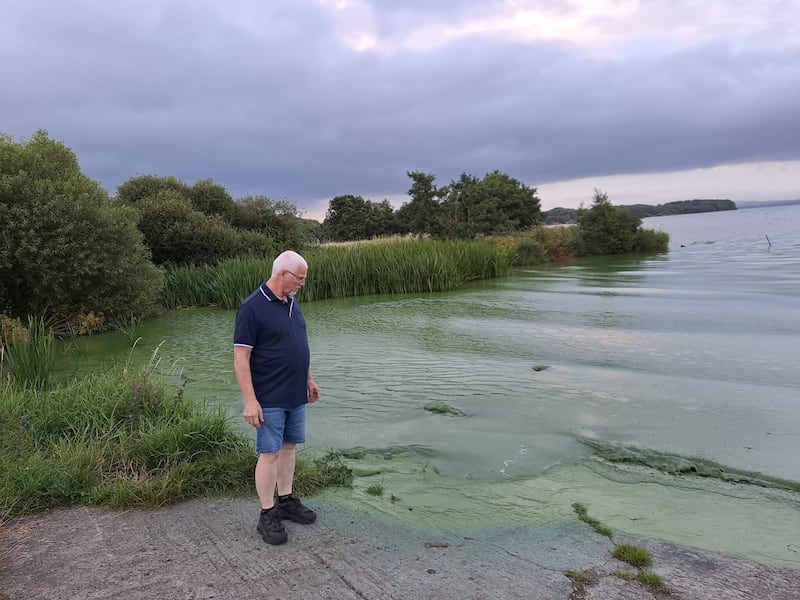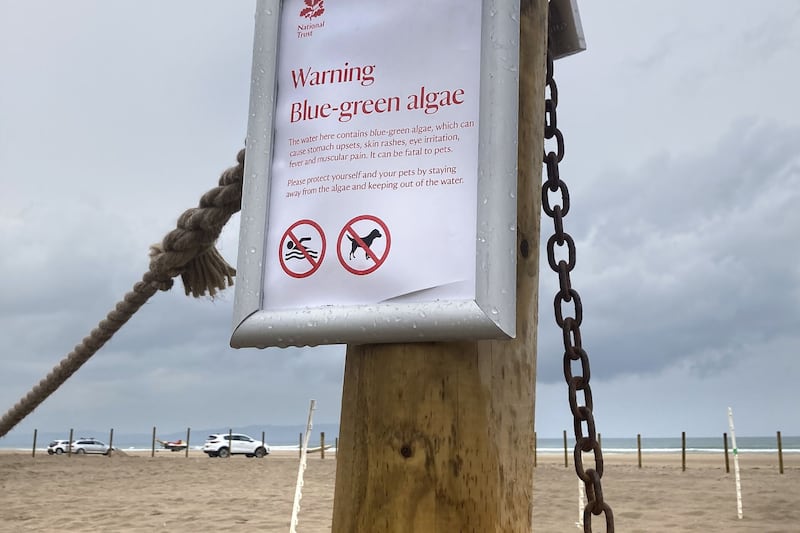Drinking water is not affected by the current widespread toxic blue-green algae blooms appearing across large parts of Lough Neagh, NI Water said on Sunday.
Lough Neagh is the main source of drinking water in the north but the government-owned company said it is "confident there is no water quality issue".
Blue-green algae blooms have been reported close to and along the shoreline and adjoining waterways on the south, west and north parts of the lough. While it is called algae, it is a bacterium and harmful to humans and potentially deadly to animals.

Nitrates, from farm run-off, agri-business and other waste, cause the algae to bloom after exposure to sunlight and warmth.
“The algae bloom at the Lough is a natural occurrence, arising when environmental conditions including light intensity, nutrients and increased temperature provide optimal conditions for proliferated growth," NI Water said in a statement.
“Members of the public who are using the Lough for recreational purposes, are reminded to take note of information notices positioned around the Lough."
The company, which manages water and sewage, added: "NI Water monitors its raw water intakes from Lough Neagh and the final treated water produced at its treatment works on a daily basis, to ensure that drinking water supplied to customers meets strict drinking water quality standards.

"NI Water also completes risk assessments of all its drinking water sources to ensure drinking water supplies are safe."
The Department of Agriculture, Environment and Rural Affairs (DAERA) said on Friday the toxic algae was so widespread it could wash up on any shore of Lough Neagh.
People who live on the lough said it is the worst they have ever seen, with one local representative said "nothing could have prepared him for the sight" as he described such thickness in parts that boat owners feared it would ruin their engines if they tried to push out on to the water.
“A major catastrophe is unfolding on the Lough. Young fry that should be feeding along the shore are lying dead on the surface as there is obviously no oxygen in the water," said Antrim and Newtownabbey Councillor Henry Cushinan.

Recently introduced Zebra Mussel into the lough has revealed the extent of the algae as the creatures are expert at filtering the water to make it clearer, allowing sunlight to penetrate to greater depths.
Meanwhile, DAERA suggested budget constraints are linked to the failure to produce the north's first Environment Improvement (EIP), which includes tackling water quality.
The Office for Environmental Protection, a UK-wide body, expressed disappointment the deadline for the plan has been missed. It was due to be in place at the end of July.
“Officials are very conscious of the deadline for publication of a new Environmental Improvement Plan and are currently working through the decision-making process to determine what action is possible in the absence of ministers and an Executive," a spokesperson said.
"This process is underpinned and informed by the guidance on decision-making published by the Secretary of State, including the primary principle that departments must live within the budgets allocated to them.
“Regardless of the outcome of that decision-making process, officials across the Department are committed to protecting and restoring our natural environment and are working extremely hard, within the resources available to them, to take forward a significant programme of work for that purpose."







